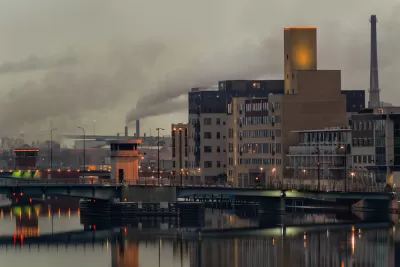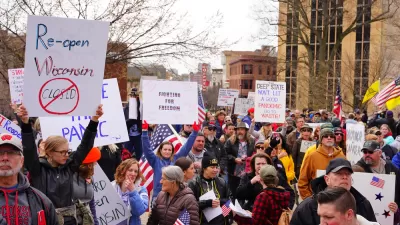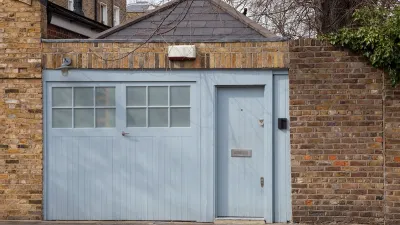Can Rust Belt cities evolve from low-skill factory jobs and paternal company town employers in to more diverse and dynamic entrepreneurial economies?

A new Brookings Institution study looks at factors of successful Rust Belt communities, and how some have evolved from older identities. At work are a number of factors, including universities, the legacy of wise community investing in company towns, and capitalizing on place and history.
Cities and counties that are home to the University of Wisconsin and Notre Dame, for example, have incomes that are higher than their statewide average, as these and other institutions contribute heavily to their respective economies.
Smart economic developers are a boon to their communities. Green Bay, Wisconsin, is leveraging partnerships with the University of Wisconsin-Green Bay's new engineering school and local business start-ups, and also capitalizing on downtown redevelopment and a mixed-use development near legendary Lambeau Field.
Company towns have built-in characteristics that provide a leg up on the competition. Columbus, Indiana, is home of Cummins, whose corporate leadership has resulted in an advanced reputation for high-quality architecture and design. As well, the town is a leader in clean technology.
FULL STORY: A Tale of Two Rust Belts, Can the Midwest's Smaller Communities Succeed?

Maui's Vacation Rental Debate Turns Ugly
Verbal attacks, misinformation campaigns and fistfights plague a high-stakes debate to convert thousands of vacation rentals into long-term housing.

Planetizen Federal Action Tracker
A weekly monitor of how Trump’s orders and actions are impacting planners and planning in America.

San Francisco Suspends Traffic Calming Amidst Record Deaths
Citing “a challenging fiscal landscape,” the city will cease the program on the heels of 42 traffic deaths, including 24 pedestrians.

Defunct Pittsburgh Power Plant to Become Residential Tower
A decommissioned steam heat plant will be redeveloped into almost 100 affordable housing units.

Trump Prompts Restructuring of Transportation Research Board in “Unprecedented Overreach”
The TRB has eliminated more than half of its committees including those focused on climate, equity, and cities.

Amtrak Rolls Out New Orleans to Alabama “Mardi Gras” Train
The new service will operate morning and evening departures between Mobile and New Orleans.
Urban Design for Planners 1: Software Tools
This six-course series explores essential urban design concepts using open source software and equips planners with the tools they need to participate fully in the urban design process.
Planning for Universal Design
Learn the tools for implementing Universal Design in planning regulations.
Heyer Gruel & Associates PA
JM Goldson LLC
Custer County Colorado
City of Camden Redevelopment Agency
City of Astoria
Transportation Research & Education Center (TREC) at Portland State University
Jefferson Parish Government
Camden Redevelopment Agency
City of Claremont




























